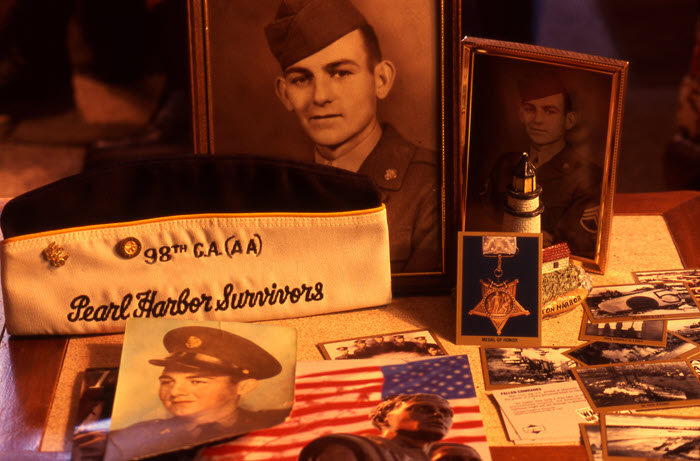Remembering What Is Impossible to Forget: Moral Injury and War

On a halcyon day in late April 2015, I was gazing toward the English Channel across a vast field of nearly ten thousand glowing white sentinels. The many crosses, punctuated by a few stars of David, are planted in the American Cemetery on a bluff above Omaha Beach in Normandy. The ground beneath my feet rumbled restlessly with the ghosts of those who are remembered on Memorial Day, and I thought about the heavy price paid by the survivors who carried home memories so terrible, many never spoke them aloud.
To manage our relationship to mortality and the overwhelming power of grief, we sanitize or sequester death and corpses with elaborate rituals and fierce taboos. But war explodes these boundaries and endangers the humanity of those we send to fight. Mortuary unit workers often spend every day for months on end processing bags full of bloody, liquefied, burned or rotting fragments of bodies transported in unrefrigerated trucks. Immersed in remains of those they love, they process pieces of flesh, clean the parts and compose individual bodies to send home.
Sometimes, though, in battle, there is not even time for this minimal care for the dead. As I stood on that bluff, a mass grave of 86 German soldiers was discovered in Belgium, a story told to me by a 59-year-old Belgium reserve soldier I met near Bayeux. As he noted, the war lives on in the soil of Europe, long beyond the time of winners and losers and the generations who fought.
Many who serve in war are often so devastated that they are the walking dead, haunted because they cannot integrate what they experienced in war with life at home, where ordinary life can seem shallow, gray and empty after the drama and camaraderie of war. They can no longer make sense of the meaning of who they once were or who they have become, a response sometimes called moral injury. Being immersed in carnage, they come home numb, disillusioned, angry, depressed and ashamed.
Moral injury comes in the aftermath of surviving; it’s the long slow burn of remembering and not wanting to remember. Desperate to forget, the survivors immerse themselves in intense work and other avoidances. Still, the specters return in eruptions of angry tears in the middle of ordinary tasks, in quiet liminal moments when memories break through, or in dreams of staring children with holes in their bodies.
How do moral human beings speak about the unspeakable horrors of combat, the moral anguish of war and the searing losses of one’s deepest friends? Without adequate support, many self-destruct slowly through addictions, failed relationships and homelessness; others die by their own hands.
We thank the troops for their service and project onto veterans what we want them to be —romantic heroes to admire, wounded warriors to help, or victims of war’s evils. Instead of listening patiently with an open heart and with respect to all they have endured and cannot forget, we impose our own assumptions so we can feel better about ourselves and move on with what we are already busy doing.
The young men and women who volunteer to defend their country and survive war are never going to be the same, and, if we are paying attention, the ways they have been changed should haunt us. We must do far more to reintegrate veterans into our families and communities, including carrying the burdens of memory so many find impossible to disclose.
The reconstruction of heart, soul and meaning is not possible to do alone. Their moral injury belongs to us. Attending adequately to their recovery is a responsible way to remember the dead honestly, with respect. If we help carry the memories, we will be better people for the struggle and better able to understand what peace requires of us.
#####
- Rev. Dr. Rita Brock, Volunteers of America's Senior Vice President, Moral Injury Programs
- Learn More
- Moral Injury
- Services for Veterans
